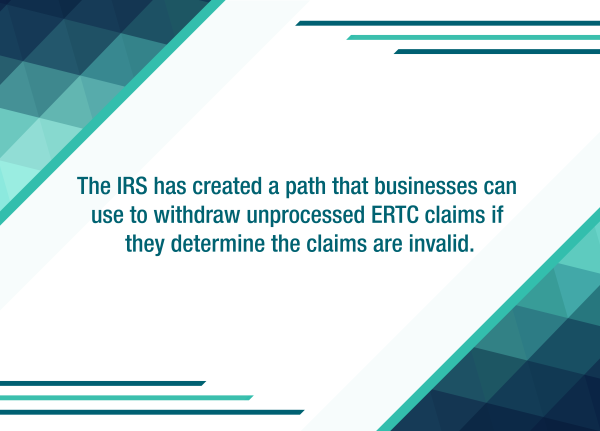Recent IRS warnings and announcements regarding the Employee Retention Tax Credit (ERTC) have raised some businesses’ concerns about the validity of their claims for this valuable, but complex, pandemic-related credit — and the potential consequences of an invalid claim. In response, the IRS has rolled out a new process that certain employers can use to […]
Payable-on-death (POD) accounts can provide a quick, simple and inexpensive way to transfer assets outside of probate. They can be used for bank accounts, certificates of deposit and even brokerage accounts. Setting one up is as easy as providing the bank with a signed POD beneficiary designation form. When you die, your beneficiaries just need […]
One might assume the term “trust fund recovery penalty” has something to do with estate planning. It’s important for business owners and executives to know better. In point of fact, the trust fund recovery penalty relates to payroll taxes. The IRS uses it to hold accountable “responsible persons” who willfully withhold income and payroll taxes from […]
Every fall, CPAs are busy preparing for audit season, which generally runs from January to April each year. This includes meeting with clients, assigning staff and scheduling fieldwork. Likewise, organizations with calendar year ends should prepare for audit fieldwork. A little prep work this fall can help facilitate the process, minimize adjustments and surprises, and […]
Many Americans own a vacation home or aspire to purchase one. If you own a second home in a waterfront community, in the mountains or in a resort area, you may want to rent it out for part of the year. The tax implications of these transactions can be complicated. It depends on how many […]
For employers, sponsoring a qualified retirement plan isn’t easy. Staying up to date on the constantly changing guidance and rules issued by federal agencies such as the U.S. Department of Labor (DOL) and IRS is a challenge. An independent retirement plan auditor can help your organization fulfill its compliance requirements and potentially reduce the risks […]
Modern cybercriminals have become increasingly sophisticated at manipulation, leaving organizations vulnerable to financial losses, data breaches, and reputational damage. In recent years, these orchestrated scams shifted to target stored data, compromise business emails, and deploy fake apps that will steal organizational and intellectual property. Professionals must remain vigilant and informed about the latest tactics employed […]
An employee stock ownership plan (ESOP) can facilitate the transfer of a business to the owner’s children or employees over a period of years in a tax-advantaged way. However, the IRS recently issued a statement warning businesses about a range of compliance issues related to ESOPs and announcing plans to ramp up compliance enforcement. The […]
This year, many Americans have been victimized by wildfires, severe storms, flooding, tornadoes and other disasters. No matter where you live, unexpected disasters may cause damage to your home or personal property. Before the Tax Cuts and Jobs Act (TCJA), eligible casualty loss victims could claim a deduction on their tax returns. But currently, there […]
As digital threats loom around every corner, the traditional, or most simplistic, approach to protecting digital assets has become insufficient. Many organizations are grappling with the ever-rising threat level and the overall protection of their internal networks. In recent years, information security professionals have identified Zero Trust as the go-to strategy to overcome cyber threats. […]
On August 30, 2023, the Financial Accounting Standards Board (FASB) unanimously voted to finalize its proposed improvements to the disclosure rules for income taxes. Here’s what’s changing and when those changes are effective. Rate reconciliation Under the updated guidance, companies will be required to provide a breakout of amounts paid for taxes between federal, state, and […]
Some assets pose more of a challenge than others when it comes to valuing and accounting for them in an estate plan. Take, for instance, an art collection. If you possess paintings, sculptures or other pieces of art, they may represent a significant portion of your estate. Here are a few options available to address […]












